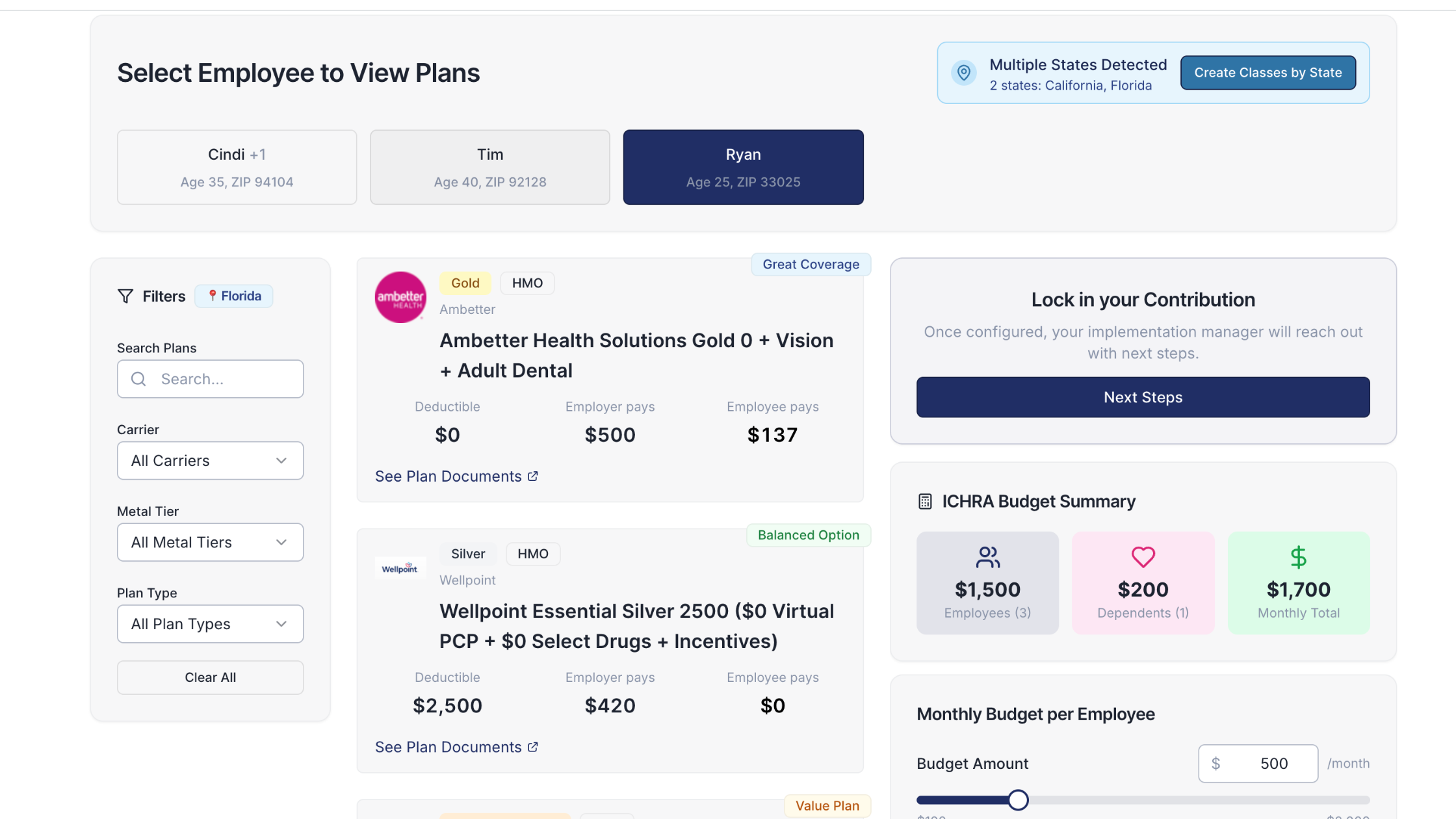Are Health Insurance Premiums Tax Deductible under ICHRA?

What is an ICHRA?
Before we get into the nitty-gritty of tax deductibility, it’s important to understand the essence of ICHRA. In simple terms, ICHRA allows employers to provide a tax-free monthly stipend for employees to purchase their own individual health insurance. Employees can also spend the money on qualified medical expenses, like co-pays or prescriptions.
Tax Deductibility for Employers
Any contributions made towards the ICHRA are tax-deductible as a business expense. This is similar to how employers can deduct contributions made to traditional group health insurance plans. Therefore, businesses that offer ICHRAs can lower their overall tax liability.
Tax Implications for Employees
The tax benefits don’t stop at the employer level. For employees, reimbursements through an ICHRA are also tax-free, provided that they pick a Qualified Health Plan.
However, there are a few nuances to consider:
- What if an employee picks a plan that costs more than their allocated ICHRA stipend? Is this extra expense also considered pre-tax? The answer is “It depends.” To be a pre-tax expense, the employee must buy an off-exchange plan. The employer must also put a 125 Cafeteria Plan in place.
- Can an employee also claim Advanced Premium Tax Credits (or “Obama Care Subsidies”)? No. Double-dipping in tax benefits isn’t allowed. Therefore, employees need to decide which route offers the greatest benefit and act accordingly.
What does this mean for your business and your employees?
For businesses considering the move to ICHRA, the tax benefits are clear:
- Simplified Budgeting: By setting a fixed allowance per employee, businesses can better predict their health benefit costs.
- Tax Savings: Premiums and other medical expenses reimbursed through ICHRA are deductible for businesses and tax-free for employees.
- Flexibility and Choice for Employees: Instead of a one-size-fits-all group plan, employees can select the insurance that best suits their needs.
Conclusion
ICHRA offers a fresh approach to health benefits, giving businesses more control over costs while still providing valuable benefits to their employees. The tax advantages – for both employers and employees – make ICHRA an appealing choice for many businesses. The Venteur team can help you evaluate whether ICHRA can benefit your business.
You got questions, we got answers!
We're here to help you make informed decisions on health insurance for you and your family. Check out our FAQs or contact us if you have any additional questions.
Explore more related content
What is Venteur
Explore the best human-first Health Insurance platform
Simple, personalized health benefits
Sign up in minutes, define your contribution, and let your employees choose the health plan that works right for them
Integrations to make everything run smoothly
We'll connect with your payroll and finance systems to make deductions and premium payments seamless
Easy onboarding and off-boarding
In just a few clicks, add your roster and make updates on the fly. We'll handle it from there.
Venteur Certified Brokers to help your employees pick the right plan
Our trusted brokers ensure the best outcomes for employees and employers by unlocking health savings and providing unrivaled plan options.
AI-powered plan recommendations to give you confidence while you shop
Backed by 30 years of healthcare data, Venteur’s AI helps employees compare and choose the best plan for their unique situation.
Compliance and reporting because no-duh!
Venteur manages plan administration, reporting, and compliance so you can focus on growing your business.


